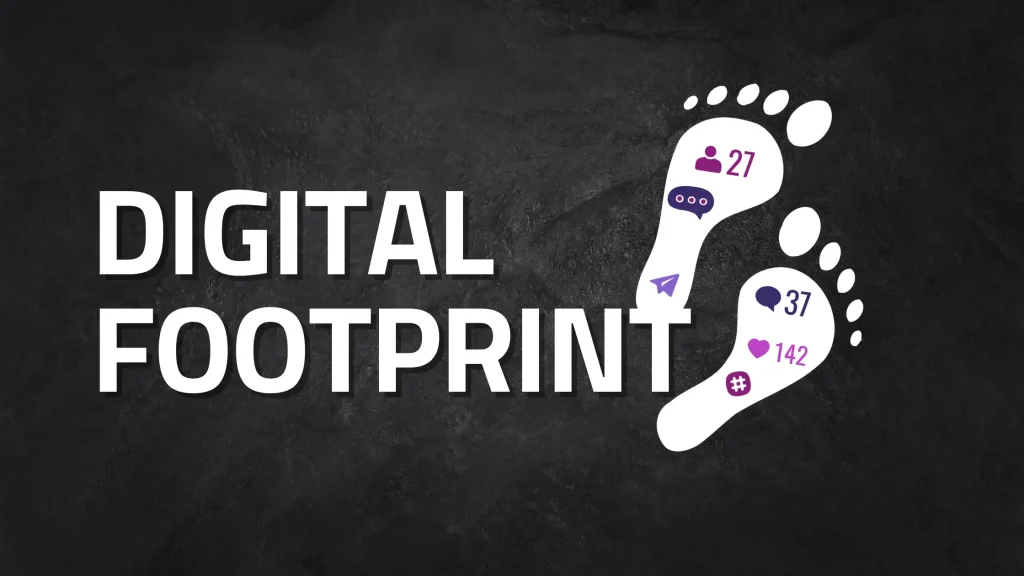In today’s hyperconnected world, everything you do online – from browsing to social media activity – leaves behind a digital footprint. This trail of data can reveal more about you than you’d expect: your interests, habits, location, identity, and even financial behavior.
Whether you’re a casual internet user, a privacy-conscious individual, or a cryptocurrency investor, keeping your digital footprint private is essential for personal security and freedom.
This guide will walk you through practical steps to protect your online identity and activity in a surveillance-driven digital landscape.

What Is a Digital Footprint?
Your digital footprint is the sum of all your online activity, including:
- Websites you visit
- Searches you make
- Social media posts
- Emails you send
- Apps you use
- Online purchases
- Blockchain transactions
There are two types:
- Active footprint: Data you knowingly share (e.g., comments, photos, posts)
- Passive footprint: Data collected without your direct input (e.g., tracking cookies, device metadata)
Why Should You Keep It Private?
Even if you think you have nothing to hide, protecting your digital print is about controlling who has access to your data.
Here’s why it matters:
- Prevent identity theft and fraud
- Avoid targeted ads and manipulation
- Protect financial activity, especially in crypto
- Keep sensitive communications confidential
- Reduce exposure to surveillance and profiling
Steps to Keep Your Digital Footprint Private
1. Use a Privacy-Focused Browser
Mainstream browsers track your data by default. Instead, use browsers that block trackers and fingerprinting.
Recommended browsers:
- Brave
- Firefox (with privacy extensions)
- Tor Browser (for maximum anonymity)
2. Browse with a VPN
A Virtual Private Network (VPN) hides your IP address and encrypts your internet traffic, preventing your ISP and third parties from tracking your browsing behavior.
Trusted VPNs:
- ProtonVPN
- Mullvad
- NordVPN
3. Use Encrypted Search Engines
Avoid search engines that store and monetize your search history.
Privacy-respecting options:
- DuckDuckGo
- Startpage
- Brave Search
4. Disable Tracking Cookies
Third-party cookies track your activity across the web for advertising purposes.
What to do:
- Block cookies in your browser settings
- Use extensions like uBlock Origin and Privacy Badger
5. Be Cautious with Social Media
Social networks are major data collectors. Everything you like, post, and share adds to your digital identity.
Tips:
- Limit the amount of personal info you share
- Use pseudonyms when possible
- Set accounts to private and review permissions regularly
6. Use Encrypted Communication Tools
Keep your chats, calls, and emails secure using end-to-end encrypted platforms.
Recommended tools:
- Signal (messaging and voice/video)
- ProtonMail or Tutanota (email)
- Session (decentralized messaging)
7. Avoid Oversharing on Forums and Blockchains
Even in the crypto world, your digital footprint can grow through public wallet addresses or forum posts.
Privacy tips for crypto:
- Use new wallet addresses for each transaction
- Avoid linking addresses to real-world identities
- Explore privacy coins like Monero or Zcash
8. Audit App Permissions
Mobile apps often request access to your camera, contacts, microphone, and location — even when they don’t need it.
What to do:
- Go to your phone’s privacy settings
- Revoke permissions from apps that don’t need them
9. Opt Out Where Possible
Many platforms offer opt-outs for personalized ads and tracking — though they don’t always make it easy to find.
Look for:
- Ad preference settings in your browser or Google account
- Data collection settings in apps and social networks
Long-Term Privacy Habits
- Keep software and devices updated
- Use strong, unique passwords (with a password manager)
- Enable 2FA wherever possible
- Regularly delete unused accounts and clear browser history
- Think twice before posting or clicking
Conclusion
In an era where data is the new currency, your digital footprint is your identity. While complete online anonymity is difficult, taking smart steps can dramatically reduce how much of your life is exposed – and who has control over it. Also it is important to basics of BTC Technology and adoption.
At Crypto Relic, we believe privacy is a right – not a luxury. By protecting your digital print, you’re not just securing your data – you’re reclaiming your freedom in a world of increasing surveillance.
1 thought on “How to Keep Your Digital Footprint Private”